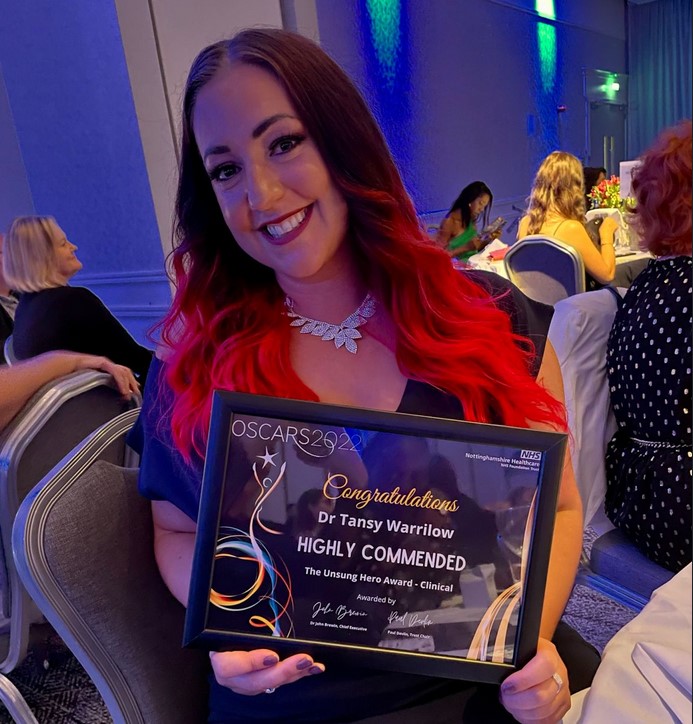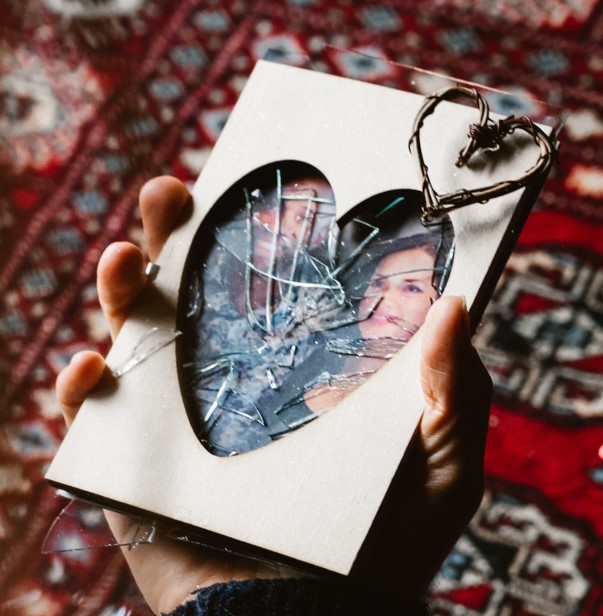Dealing With The Toxicity Of Online Dating
6 Key Tips From A Clinical Psychologist

I first became aware of the toxicity of online dating recently, when my daughter, Tansy, and I were away on a short break and she was telling me about some of her experiences of online dating.
Tansy is 36 years old and I am 68 so our experiences reflect the generational gap.
I have never personally used a dating site but I have a number of friends and associates who have done, and who have met their long term partner this way.
Re-entering the dating scene...
After an intensive period of completing her applied doctorate in clinical psychology and taking over as chair of the board of trustees of a charity Tansy re-entered the dating scene a couple of years ago and was using a number of online dating apps.
Tansy is a sociable woman with many female and male friends and has demonstrable social skills, and is worldly-wise. I say this because I was appalled at the experiences she shared with me and specifically at the unbelievable behaviour of the guys she was connecting with, who were in their mid to late thirties and well educated professionals.
Toxicity is the price tap of accessibility
In the early days of online dating, users were vetted and had to go through a registration process and agree to comply with a code of conduct designed to ensure
that they conducted themselves in a reasonably courteous and civilised manner. But that was light years ago, back in the dim and distant days of pre-historic online dating.
Now in the post-covid era when we have all become so used to ordering just about anything online, with a home-delivery in 24-48 hours, online dating apps are increasingly popular as a quick and easy way to meet new people.
But that accessibility comes at a cost - and the price tag is the toxicity of the behaviour of so many users of these apps and the damage that can do to your emotional and psychological well being.
Why Is Online Dating So Toxic?

Tansy suggested to me a number of reasons, based on her experience, why online dating is so toxic:
[1] We now expect and accept poor behaviour Hiding behind a screen, we find that people feel bolstered to say things and act in a way they wouldn’t dream of in real life. They’ll say rude things, they’ll call you names, they’ll totally
ignore you, they’ll ask you for sex in the first 5 minutes of chatting.
Whilst commonplace on online dating sites, you’d probably be pretty
shocked if you encountered this anywhere else. What’s worse is that in response we simply lower the bar of human
decency. We set lower expectations of the behavior we can expect from
someone online. [2] Choice overload We tend to think of choice as a good thing. We imagine it brings us
closer to finding something that is most suited to us. Something even
better. But it’s not really the case. Quite frankly our brains can’t handle a lot of choice, and it can have some negative side effects when we are faced with it. [3] You face higher levels of rejection More choice equals more knockbacks too. Dating apps feed into our on-demand culture. We want everything now, and we don’t want to wait. But love isn’t the same as that food you ordered from Uber Eats. It’s a more complicated process. On dating apps we are opening ourselves up to way more unmet expectations and far more frequently than in real life. [4] Swiping can become addictive Let’s not forget that ultimately dating apps are a business. And they’re a very big business, with industry data showing they made $6.2 billion in 2022. Let’s not be under any illusion that they’re playing matchmaker here.
They are out to make money. And they do this by keeping you on the app. [5] It’s inherently shallow It’s very easy to start to feel like a piece of meat on dating apps. The whole format of popular applications like Tinder and Bumble is to
select potential dates from a few pictures and very limited (if any at
all) information on the person. When dating becomes 2-dimensional it automatically makes it more shallow. [6] It dents your self-esteem and messes with mental health Countless studies have shown that dating apps expose you to more stressors. Social anxiety and depression have been linked to their usage. One piece of research published in BMC Psychology found that people who use dating apps are indeed more likely to be depressed, anxious or feel distressed as a consequence. Meanwhile, another study showed that male Tinder users struggled with self-esteem whilst female users had body image issues. Frustration, toxic connections, low self-esteem, loneliness, and disappointment. There are plenty of mental health pitfalls to fall foul of on dating apps.
6 Key Tips From A Clinical Psychologist
Dealing With The Toxicity Of Online Dating

One of the key theme of this site is about learning how to think effectively because this enables you to respond better to things that happen to you, and the long term cumulative effect of your all your responses has a big impact on your health, wealth and happiness.
In online dating you obviously cannot control the other person's behaviour but you do have control over your own response to it - it is a choice.
I have asked my daughter Dr Tansy Warrilow to draw on her experiences of the toxicity of online dating and her professional expertise as a clinical psychologist to share her tips on how to use good thinking skills to:
- Protect yourself emotionally and psychologically in online dating
- Maximise your chances of meeting the right person without losing your self respect and your sanity
Knowing as you did the toxicity of online dating, why did you decide to try it?
I would like to mention that all of the following is in reference explicitly to a woman dating men and that men dating men, women dating women and other people on the gender spectrum may have different experiences.
My life has always been busy, exciting and fun and I loved the single life. I had previously been on and off dating apps and not really taken them that seriously. Then the pandemic hit and at the end of 2020 I caught covid and was pretty poorly which triggered me to reassess my life and everything in it.
Socialising was limited then, but even when it wasn’t I realised I didn’t tend to meet men out and about and I wasn’t keen on meeting men at work.
- I came to the conclusion I needed a more assertive approach to dating.
Having had many previous online dating disasters, I went back into the world on internet dating fully aware of what was ahead of me.
- It was an informed decision as part of my intention to increase my dating opportunities and work towards finding a healthy stable long-term relationship.
What were your expectations?
- My expectations were quietly hopeful but realistically apprehensive.
My confidence in myself had increased from my previous flirtation with dating apps so I felt less daunted by the idea of dates and had clearer about what it was that I was looking for.
What were your experiences?
My experiences ranged from repeated monotonous conversations about whether I have pets and what my favourite food was to unacceptable behaviour which seemed to now be common place:
- It was not unusual to be sexually propositioned before even meeting someone, or to be sent explicit photos to my social media
- One guy threatened me on a date
- Another told me women belong to men and so shouldn’t wear skirts
- One hounded me for photos of my feet
- There were guys with girlfriends
- Some didn’t take no for an answer
- Some wouldn’t ever give an answer
- There were lots of experiences of being ghosted.
It wasn’t all bad, there were some nice men, and some that just weren’t a match.
How did you respond to this bad behaviour?
I tried to build in barriers to protect myself from the toxicity of online dating and being emotionally hurt by people I hadn’t invested in, so I would have a relatively low threshold to disengaging with men that were not behaving well.
- I am sensitive and try and be compassionate and kind to people so sometimes it would upset me if I didn’t experience the same in return.
- When I got upset I would call someone close to debrief about it (often my dad!) which also helped me not lose hope.
- In addition, I would try and keep myself busy so that the dating life didn’t become all consuming.
How did you handle your own feelings and emotional responses to this bad behaviour?

I found it very wearing and at times hopeless.
- Even when I met people who were nice but weren’t a match or when conversations weren’t getting off the ground it sometimes felt like trying to find a needle in a very prickly haystack.
I kept myself busy so that a relationship was just part of my life, not the only goal.
I did all the things I would have liked to have done with a partner, for example I went to bonfire nights with friends, I solo travelled Rome, I saved for my dream house and watched all the classic films.
- I also reminded myself that someone else’s behaviour is a reflection of them and not me, and that I couldn’t control what other people do, I could only control how I responded with it.
I fought my desire to hold people accountable knowing that it would only wind me up more.
Why do you think these men behaved to badly?
I think there are 3 reasons why people behave so badly when online dating:
- Communicating via a screen with a tool that enables a person to remove all trace of another without warning creates a sense of courage, carelessness and a removal or responsibility that we don’t have when we talk to people face to face.
- I think because there are literally hundreds of thousands of potential matches to swipe through, conversations and people become disposable and there is less need to make an effort so people (men and women) tend to lose interest sooner and search for the greener grass.
- Also, I think people drop their standards, I recognise I probably did this at times too and allowed people to behave in ways that I wouldn’t expect in real life.
A mix of online anonymity, excessive choice and an overall dropping of standards means that ghosting, uninvited sexually explicit communication and a ‘hot and cold’ communication style all adds to the toxicity of online dating until it becomes common place.
After these many bad experiences how did you manage to keep going with online dating?
I managed to keep going with online dating with great difficulty!
- I felt like I had a love/hate relationship with dating apps.
On the one hand I loved that it gave me the hope that my opportunities were broadened and so I was more likely to meet someone but on the other, I hated the nature of it all.
- After a while I realised I needed to build in some strategies to deal with the toxicity of online dating.
I engaged with it genuinely but that it didn’t consume me or keep upsetting me.
I created some distance from it. I did this by turning off notifications from apps which meant that I would only engage with it when I chose to (rather than being exposed to messages from potential matches at all hours of the day) I would only go on the apps certain points in the day which again gave me more control.
I decided not to give out my phone number until after at least one if not two dates, that way I felt more in control of how someone could treat me and it was easier to create a level of safety if I felt someone wasn’t taking no for an answer.
Ultimately, what was the outcome? Did you meet someone you could have a relationship with?
I went on some catastrophic dates and feeling quite despondent and then got talking to someone...
I wasn’t really sure about him at first, but he was consistent, respectful and interested, he didn’t ever push any boundaries and would even check in about how I felt about things.
We eventually went on a date which went better than I could have imagined followed by several more...
Now after one year we are moving in together!
- I wouldn’t have met him if it wasn’t for online dating as he lives in a different city, so it was definitely all worth it in the end!
Was there a point at which you would have given up?
Potentially, I always pay close attention to my energy, I try and ensure that people/events/situations in my life either have a neutral or positive impact on me.
- When the balance continues to tip into having a negative impact then where possible I take action.
For example, I am currently taking a social media break, I create gentle distance from myself and colleagues or friends that have a less than neutral impact on my energy and if online dating had too much of an impact on me I would have taken a break, given up on it or tried a different method (eg match making or speed dating).
What are your top tips for dealing with the toxicity of online dating?

1. Boundaries!
Not just a rule for dating but a rule for life!
I urge everyone to identify for yourself with clarity what your negotiable and non-negotiable boundaries are.
- It’s easy to know when someone has crossed a boundary and it’s a horrible feeling so putting things in place before that happens is important.
- For me personally some examples of non-negotiables were being sent explicit photos, opting to speak via the app until I got to know someone and polygamy (not because I don’t respect these sorts of relationships, in fact I think there is a lot of value in ethical non-monogamy, but because it’s not something I was looking for at the time).
- Having these in place helped filter through people that were unsuitable, and if someone online pushed against these non-negotiables for me, then that also told me that they weren’t a good fit.
- It’s useful to also hold more flexible boundaries that can be strengthened or softened, being aware of the limits of what you are comfortable with. For example if someone is a bit flirty to the line you can state your boundaries and continue, if someone then crosses that you have been explicit then again you know they are not right for you.
- Boundaries therefore service two purposes: [1] creating psychological safety and [2] providing opportunities to explore whether matches will respect your requests.
2. Be Brave In Your Bio
Stating your values invites those who share your values to connect with you.
Stating that I was looking for a relationship meant that those looking for hook ups were less likely to show interest.
- Putting out there who you really are and what you really want feels vulnerable, but I found that this directed me to the people I wanted to match with and away from those who weren’t a match.
3. Create Psychological Distance
Your ego will be the first to internalise when something becomes toxic, blame itself for every non-starter, ghost or bad behaviour.
It’s essential to have some psychological distance between yourself and the dating app:
- Personally, I disliked the powerlessness of waiting for replies and wondering if I would be ghosted again.
- I found looking at my phone to see either an absence of messages or an influx of unwanted messages amongst my communications from my friends and family didn’t work for me. It felt too enmeshed.
- To create distance, I disabled app notifications meaning I would only see a message when I chose to look, and I set myself certain times of the day to open the apps.
- I also explained to men that I preferred contact only through the app again reducing the connection between someone I just met and my precious life.
4. Acceptance Over Expectation
The temptation is to expect to meet the love of your life immediately (rarely the case) and become quickly disheartened to meet countless others who are talking and dating multiple other people.
- Accept that it’s a rat race of love and everyone is playing.
- You just have to be the you-est you that you can be and accept that this is the only thing you have control over.
Accepting the dating apps for what they are whilst focusing on continuing to build your life helps overcome the unrealistic expectation that the perfect match is going to present themselves straight away.
5. Gravitate Towards Gratitude
Dating online can become all-consuming and it can feel like everyone else in the ‘real world’ has everything that you want.
- Negative experiences online colour our awareness of the things we do have in life so focussed gratitude on what we do have, reminds us that online dating is only part of the story.
6. Cultivate Compassion
It can be so angering to be treated in a manner that you would never treat anyone else.
It’s easy to feel disappointed, angry, hurt and even worthless with online dating.
- Cultivating compassion for yourself is a critical tool for self-preservation when you are online dating.
- Self-compassion reduces anxiety, low mood and fear of failure – all of which online dating can trigger.
Top tips for self-compassion include:
- Imagining your friend in the same position and saying to yourself what you would tell them
- Looking after yourself when you’re hurting this could include comfy clothes and junk food or fresh air and a new book, whatever it is do something that feels good
- Directing your thinking to include positive self-talk to praise and validate yourself rather than allowing thoughts to drift to what you could have done differently.
Further Reading:
Roxanne - I Will Not Share You With So Many Other Men
Next Article: Why Understanding Ergodicity Is Critical To Your Long Term Survival
Return from "The Toxicity Of Online Dating" to: Walking The Talk
LATEST ARTICLES
Does Prayer Work? The Psychology of Prayer, Meditation and Outcomes
 Reality Is A Complex System Of Countless Interactions - Including Yours. So does prayer work? The problem is that the question itself is usually framed in a way that guarantees confusion. We tend to a…
Reality Is A Complex System Of Countless Interactions - Including Yours. So does prayer work? The problem is that the question itself is usually framed in a way that guarantees confusion. We tend to a…Living in Survival Mode Without Surrendering Mental Authority
Living in Survival Mode Without Surrendering Mental Authority
 Clear Thinking When You’re Just Trying to Stay Afloat. Many people today are overwhelmed because they are living in survival mode - not temporarily, but as a persistent condition of life. For many, th…
Clear Thinking When You’re Just Trying to Stay Afloat. Many people today are overwhelmed because they are living in survival mode - not temporarily, but as a persistent condition of life. For many, th…Manifestation Without Magic: A Practical Model
 Manifestation without magic is not a softer or more intellectual version of popular manifestation culture. It is a different model altogether. Popular manifestation teachings tend to frame reality as…
Manifestation without magic is not a softer or more intellectual version of popular manifestation culture. It is a different model altogether. Popular manifestation teachings tend to frame reality as…Staying Committed When You Can't See Progress - The Psychology of Grit
 Uncertainty Is Not The Absence Of Progress, Only The Absence Of Reassurance. One of the most destabilising experiences in modern life is not failure, but uncertainty and staying committed when you can…
Uncertainty Is Not The Absence Of Progress, Only The Absence Of Reassurance. One of the most destabilising experiences in modern life is not failure, but uncertainty and staying committed when you can…The Battle For Your Mind - How To Win Inner Freedom In A Digital Age Of Distraction
 From External Events to Inner Events. We often think of “events” as things that happen out there: the traffic jam, the rude comment, the delayed email reply. But what truly shapes our experience is wh…
From External Events to Inner Events. We often think of “events” as things that happen out there: the traffic jam, the rude comment, the delayed email reply. But what truly shapes our experience is wh…How to See Your Thoughts Without Becoming the Story
 A Practical Guide to Thought-Awareness. You can spend your life inside the stories of your mind without ever learning how to see your thoughts clearly and objectively. Most of the stuff we tell oursel…
A Practical Guide to Thought-Awareness. You can spend your life inside the stories of your mind without ever learning how to see your thoughts clearly and objectively. Most of the stuff we tell oursel…The Collison Decision Matrix - A Simple Framework for Better Choices
 The Collison Decision Matrix Is A Practical Everyday Thinking Tool. Most of us spend a surprising amount of time worrying about decisions. From small ones such as what to wear, what to eat, what to te…
The Collison Decision Matrix Is A Practical Everyday Thinking Tool. Most of us spend a surprising amount of time worrying about decisions. From small ones such as what to wear, what to eat, what to te…The Power Of Asking The Right Question
 The Power Of Asking The Right Question Lies In The Quest For Insight. To experience the power of asking the right question you must develop the practice of asking questions. The best way to improve th…
The Power Of Asking The Right Question Lies In The Quest For Insight. To experience the power of asking the right question you must develop the practice of asking questions. The best way to improve th…Site Pathways
 Here is a site pathway to help new readers of Zen-Tools navigate the material on this site. Each pathway is based around one of the many key themes covered on this site and contain a 150 word introduc…
Here is a site pathway to help new readers of Zen-Tools navigate the material on this site. Each pathway is based around one of the many key themes covered on this site and contain a 150 word introduc…How To Live With Contradiction - Beyond Thought Let Stillness Speak
 A major impact on so many peoples' lives is the situational contradiction of unfilled realistic expectations. So where does all this leave us? Well here we are, with mental equipment that is more lim…
A major impact on so many peoples' lives is the situational contradiction of unfilled realistic expectations. So where does all this leave us? Well here we are, with mental equipment that is more lim…How To Trust The Process Of Mindfulness - Right Now
 In mindfulness, the process isn’t some distant goal — it's what is happening right now. When we talk about how to trust the process of mindfulness the credibility of the process is heavily dependent…
In mindfulness, the process isn’t some distant goal — it's what is happening right now. When we talk about how to trust the process of mindfulness the credibility of the process is heavily dependent…